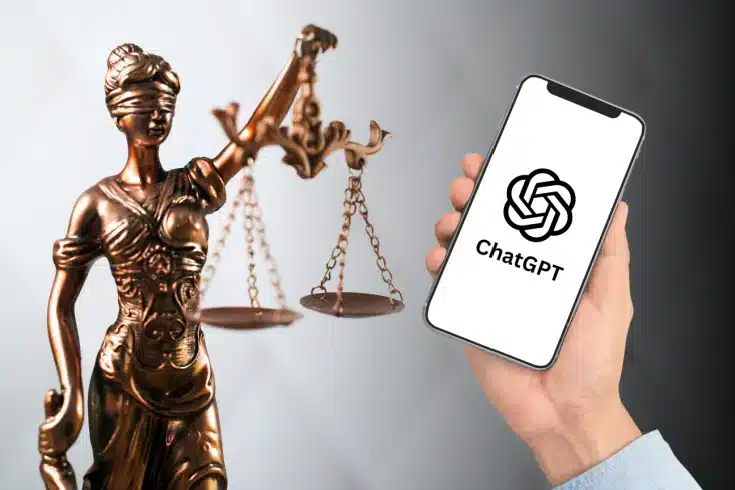Even with a 500 Million Yen Compensation Verdict... What is the Legal Responsibility of Fast Movies? A Lawyer Explains Criminal and Civil Liability

There has been growing concern over the illegal video content known as “Fast Movies,” which are edited down to approximately 10 minutes. “Fast Movies” are created by using movie footage without permission, editing it down to about 10 minutes with subtitles and narration, and revealing the entire storyline. This constitutes illegal video content. In 2021, there were even arrests made for publishing such “Fast Movies” online.
On November 17, 2022, the Tokyo District Court drew attention when it ordered a payment of 500 million yen in damages for copyright infringement.
In this article, we will discuss the legal issues with “Fast Movies” and the legal responsibilities associated with them.
What Types of Copyrights are Infringed by Fast Movies?

According to Article 10, Paragraph 7 of the Japanese Copyright Law, movies are protected as copyrighted works. Therefore, creating fast movies by editing films without permission and posting them on YouTube constitutes copyright infringement.
So, how exactly do fast movies infringe on copyrights?
Adaptation Rights
One of the copyrights is the adaptation right, which is the right to translate, arrange, transform, dramatize, etc., a copyrighted work.
Japanese Copyright Law (Translation Rights, Adaptation Rights, etc.)
Article 27: The author has the exclusive right to translate, arrange, transform, dramatize, film, and otherwise adapt his/her work.
Fast movies, created by editing film works, use the actual footage of each film and explain the plot of each film through narration. However, this act of creation relies on existing copyrighted works, maintains the identical essential integrity of their expression, and adds modifications, additions, changes, etc. to the specific expression, creating a separate work that allows those who encounter it to directly perceive the essential integrity of the expression of the existing copyrighted works. It can be said that this infringes on the adaptation rights of the copyright holders of each film.
Public Transmission Rights
Copyright includes the right of public transmission, which is the right to transmit the work to the public.
Japanese Copyright Law (Public Transmission Rights, etc.)
Article 23: The author has the exclusive right to publicly transmit his/her work (including making it transmittable in the case of automatic public transmission).
The act of recording and saving the video data of fast movies on the recording device of a server computer managed by Google LLC or YouTube LLC, which is a connected automatic public transmission device, via the Internet, setting it to public on YouTube, and making it automatically publicly transmittable to an unspecified number of people, can be said to infringe on the public transmission rights of the copyright holders of each film.
Do Fast Movies Qualify as “Quotations”?
Under the Copyright Law, if it qualifies as a quotation, it is not illegal to use the copyrighted work without the consent of the copyright holder.
However, a quotation refers to the use of someone else’s copyrighted work within one’s own work. In order to be considered a quotation, it must be done within a range that is justified for the purpose of the quotation, and it is presupposed that the copyrighted work of a third party is used subordinately within one’s own work. Fast movies use other people’s copyrighted works as the main content. Therefore, it cannot be said to be a legitimate quotation.
Legal Actions Against Fast Movies

Let’s examine the legal actions taken against Fast Movies, both in criminal and civil terms.
Criminal Penalties
In 2021, three individuals who had been earning advertising revenue by releasing Fast Movies were arrested and indicted. In this case, the Sendai District Court found the defendants guilty of copyright infringement, including adaptation rights infringement and public transmission rights infringement.
The creation and publication of so-called Fast Movies, which edit movie works into short ones and introduce the synopsis by adding narration, deprive movie copyright holders of the opportunity to receive legitimate compensation, destroy the revenue structure of movies, and may hinder the development of movie culture, which is worthy of severe criticism. Moreover, the defendants have committed each crime by repeatedly infringing copyright in a habitual and professional manner, dividing their roles.
The number of copyright holders who have been infringed upon amounts to 21 companies, and considering the number of times each video has been played, the amount of damage is expected to be quite large, and the result is severe.
Sendai District Court, November 16, 2021 (Gregorian calendar year) Judgment
Copyright infringement, according to Article 119, Paragraph 1 of the Copyright Law, is punishable by “imprisonment for up to 10 years or a fine of up to 10 million yen, or both.” However, the three defendants were each sentenced to two years in prison with a four-year suspended sentence and a fine of 2 million yen, one and a half years in prison with a three-year suspended sentence and a fine of 1 million yen, and one and a half years in prison with a three-year suspended sentence and a fine of 500,000 yen.
In the judgment, it is stated:
The crime was committed with the aim of earning advertising revenue based on the number of video plays, and there are no circumstances to consider in the greedy motive for the crime.
However, considering that there have been no cases where criminal responsibility has been questioned for the creation and publication of Fast Movies, even if the illegality of such actions becomes more widely known through this judgment, if the creation and publication of Fast Movies continues to be rampant, it may be said that the trend of punishment should be shifted in a heavier direction. However, at this point, it is appropriate to impose a prison sentence and a fine as a punishment for a case of this scale, and to suspend the execution of the prison sentence for those without a criminal record as a principle.
Sendai District Court, November 16, 2021 (Gregorian calendar year) Judgment
In the future, heavier criminal penalties may be imposed on copyright infringers who post Fast Movies. In the case of “Manga Village,” which has a similar structure to Fast Movies, the site operator was sentenced to three years in prison, a fine of 10 million yen, and a confiscation order of about 62 million yen for copyright infringement and crime proceeds concealment.
Amount of Civil Damages
After the criminal trial, the Content Overseas Distribution Association (CODA) and 13 member companies of the Japan Video Software Association (JVA) filed a lawsuit for damages. The plaintiffs calculated the damage caused by Fast Movies at 2 billion yen and demanded a payment of 500 million yen as a minimum recovery of damages. The defendants in this lawsuit were two of the three arrested individuals who were in Japan.
In response, the Tokyo District Court ordered the two defendants to pay more than 500 million yen in total damages for copyright infringement on November 17, 2022 (Gregorian calendar year).
In this trial, the defendants admitted to the fact of copyright infringement (infringement of adaptation rights, infringement of public transmission rights), so the amount of damages was disputed. Based on Article 114, Paragraph 3 of the Copyright Law, the amount of damages was estimated.
Copyright Law (Estimation of the Amount of Damages, etc.)
Article 114, Paragraph 3: The copyright holder, the publisher, or the holder of neighboring rights may claim compensation from a person who has intentionally or negligently infringed his or her copyright, publishing right, or neighboring rights, in an amount equivalent to the amount of money he or she should receive for the exercise of his or her copyright, publishing right, or neighboring rights, as the amount of damage he or she has suffered.
The court focused on the fact that YouTube users need to pay a certain rental fee to watch movies in streaming format on YouTube, and movie copyright holders plan to receive a price for the exercise of their copyright from this rental fee.
In other words, since it costs about 400 yen to watch a movie on YouTube, it was calculated that “it is reasonable to set the damage at 200 yen per play.” The reason for calculating it as 200 yen, not 400 yen, is thought to be considering the handling fee paid to the digital platform and the fact that the entire movie was not uploaded.
The calculation of the damage amount of 2 billion yen is also based on “200 yen per play.” The total number of plays of the 64 Fast Movies uploaded by the defendants is about 10 million, so the damage was calculated as 10 million x 200 = 2 billion yen.
Regarding the basis for this calculation, the judgment determined that the method of calculating the damage amount claimed by the movie company side was reasonable. The court ordered the two defendants to jointly pay the 500 million yen that the plaintiffs had sought as a minimum recovery of damages.
Summary: Consult a Lawyer for Copyright Infringement Issues like Fast Movies
As seen with cases like Fast Movies, severe penalties can be imposed for malicious copyright infringement, both criminally and civilly.
In the case of YouTube, it takes time to investigate the uploader’s address and real name. If your copyrighted work is used without permission on platforms like Fast Movies, it is crucial to consider legal action promptly.
Introduction to Our Firm’s Measures
Monolith Law Office is a legal office with extensive experience in both IT, particularly the internet, and law. In recent years, intellectual property rights, including copyrights, have been attracting attention. Our firm provides solutions related to intellectual property.
Category: IT
Tag: CybercrimeIT





















